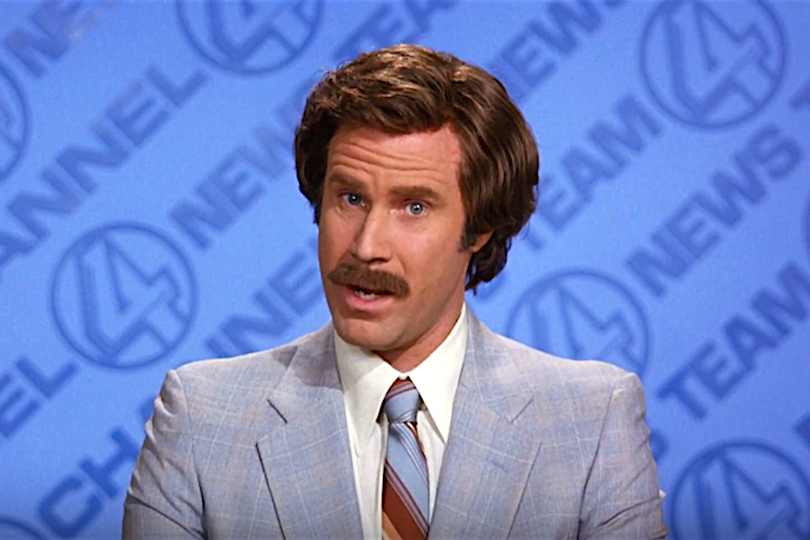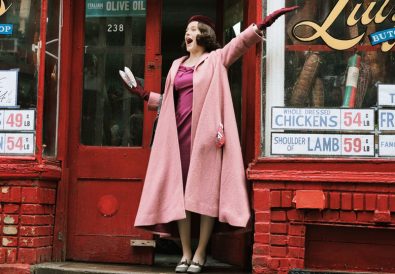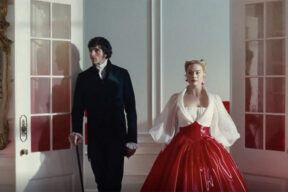Anchorman: The Legend of Ron Burgundy, starring Will Ferrell and Christina Applegate, was released to theatres across North America on July 9, 2004…
By Anne T. Donahue
The first time I saw Anchorman: The Legend of Ron Burgundy, I thought it was just okay. It was fine! I laughed, I rolled my eyes, I saw it with a few guys from high school who I wanted very much to think I was cool. (I was 18: the end-game to every decision I made was in an attempt to make other people think I was cool.) I didn’t think about it again for a few years until quoting it became not just the default language at my retail job, but a benchmark for what I was purported humour to be.
Just to be clear, I’m not about to launch into an anti-Anchorman rant or attempt to turn anybody reading this against it. Anchorman is 2000s-era canon. It was – and is – a pop culture relic that, like all artifacts examined decades after the fact, belongs in the context of all that came before it. (It did not fall out of a coconut tree.) In 2004, Anchorman was a perfect representation of what comedy was supposed to be: loud, over-the-top, weird, and a little bit sexist. Ron himself is a buffoon, but he is a clueless buffoon who isn’t malicious, just a caricature of a certain kind of man of the time. It’s satire, baby! A commentary on the norms of the 1970s and the way in which some men were unable to adapt to the rising stature of women. The butt of the joke, pretty consistently, is Ron himself. We’re not supposed to watch it and think, “We’re rooting for him, this excellent guy!”
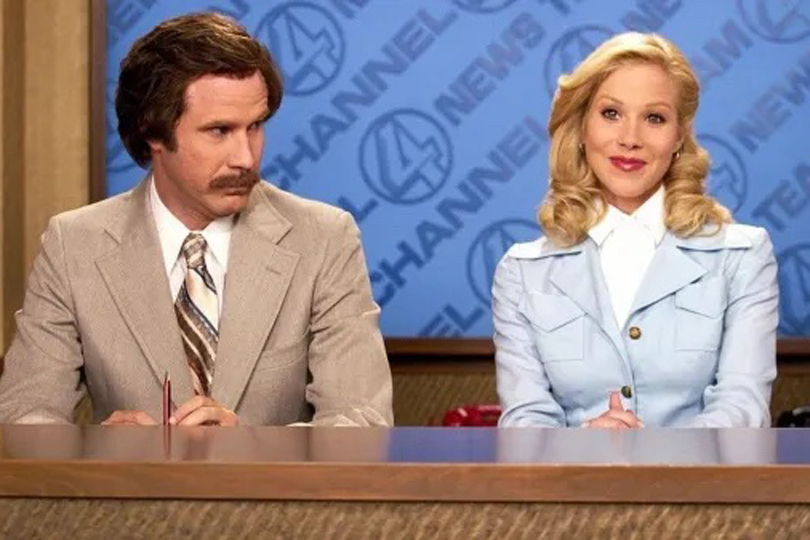
In 2024, I understand this. But 20 years back, Anchorman was the indicator of who and what funny was. I knew my friends and I quoting it at work was the pinnacle of comedy (because we were/are hilarious, and everything we say or do is the pinnacle of comedy), and I knew that quotes like “I have many leather-bound books” were mocking a specific kind of flex. Yet I couldn’t differentiate between “guys who liked quoting Anchorman” and “guys who were legitimately funny.” And of course, it all came down to what guys thought. Most choices I made came down to what guys thought. I learned quickly that if I said “my apartment smells like rich mahogany,” a certain type of dude would think I was hilarious, and our relationship would quickly evolve into an Anchorman quote-off we were passing off as our own senses of humour.
What I’d yet to learn was that appreciating a movie and making a character’s best lines your entire personality does not a sense of humour make; that using the “Ron Burgundy voice” was funny as a novelty, but did not mean that you were funny. I didn’t understand that I could sift through what I liked about a movie and learn from that approach, using it to shape the way I approach my writing or the way I told stories. I didn’t know that I could leave aspects of somebody else’s work behind because it didn’t suit my own tastes, or that I could simply think something was funny and then move on. Doing that type of work is scary. Everybody liked Anchorman, but let’s be real: not everybody can like you.
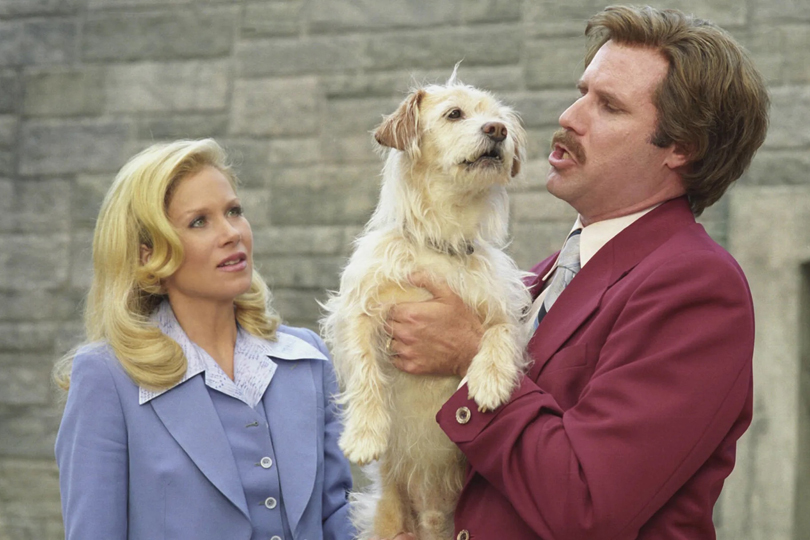
I don’t remember when quoting Anchorman fell off, but by the 2010s movies and TV shows and podcasts and social media meant that comedy was more of a buffet than prix fixe. There was more room, more reflection, more challenges to what we’d all accepted was the status quo, and there was also the aspect of growing up and leaving relics to leave behind and pick up later (much like we’re doing here today). Anchorman 2 came out, and it was fine, but because we’d all grown up and started to understand creativity a little bit better, most of us watched it, laughed, and went back to our own lives instead of memorizing full scenes to perform in front of our friends to impress somebody you liked. Which, I think, is the best way to enjoy and to appreciate somebody else’s work.
Between you and me, I’m grateful for Anchorman. Not only because it helped break the ice in retail, but because it was the push I needed to begin sifting through what I thought was funny versus what I thought I was supposed to emulate. I think sometimes of the guys I liked whose entire conversations with me revolved around quoting a Will Ferrell movie, and how I hid behind his loud, brash, satirical character in hopes that I’d be admitted to a club in which I was considered as funny as he was. I don’t think I was, but two decades later, that’s okay. I never actually owned any leather bound books to begin with.
Need a little more Anne? Read more from Anne T. Donahue right here!

